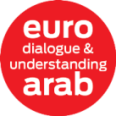My name is Yazan Khalili, I’m a Palestinian architect and artist and have spent most of my life living in the West Bank. I’m currently studying fine arts at the Rietveld Academy in Amsterdam to further develop my skills as an artist.
Although I have been producing artworks for years before this course without any formal training, I found recently that in order to continue to advance, I needed the opportunity to not only learn the finer points of my trade, but also to be in an experimental, constantly creative environment. Working with others, gaining input and giving it where necessary and being able to learn theory alongside its practical applications is the environment I need to continue to improve.
In my work I use photography and the written word, unpacking historically constructed landscapes. Borrowing from cinematic language, images become frames where the spectator embodies the progression of time and narratives. I wove together parallel stories over the years, forming both questions and paradoxes concerning scenery and the act of gazing, all of which are refracted through the prism of intimate politics and alienating poetics. In particular, I focus on the effect of geographical distance on our rendering of territory, and its ability to heighten or arrest our political and sentimental attachments.
In places like Palestine, the image itself can become oppressive, as violence isn’t only what is practiced through space but is also in producing a landscape out of that violence; i.e. The Israeli built Wall isn’t there only to separate us from the land but it is there also to become our landscape. If violence can be created/realized through the image, then perhaps emancipation can be realized through the image… but can the image itself be emancipated?
The questions I want to investigate circle around the representation of politics and art, as well as the framing of the Palestinian identity. How can photography operate as a proposition, and a political tool in the production of the space it operates in? What are the tools and techniques of this political proposition? Can we (Palestinian photographers/Artists/image makers) use our tools and techniques of production to transcend our stereotypical role as local/oppressed artists? Can we escape the tendency to fall into the trap of documenting contemporary politics and reproducing the easily consumed image by the spectator/consumer, the image of the victim?
My work and the skills I continue to develop at the Rietveld Academy will hopefully help answer at least some of these fundamental questions.

